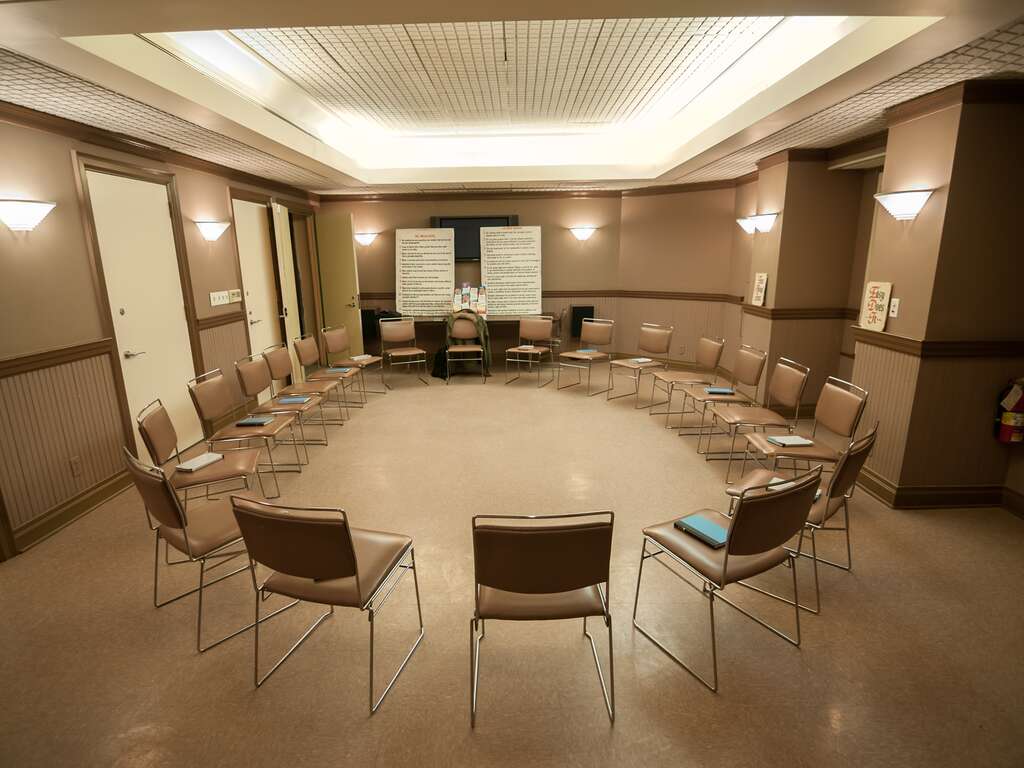The Basic Concept of 12 Step Programs
The basic concepts of all 12 step programs are the same – to help individuals recover from addiction, and rehabilitate their lives. There are currently a variety of 12 step programs, all of which owe their existence to Alcoholics Anonymous, which was originally developed in 1935 by Bill Wilson and Dr. Bob Smith in Akron, OH. The book Alcoholics Anonymous, also known as The Big Book, was originally published in 1939, and details stories of addiction and recovery as well as complete instructions on working through the 12 steps.
To be sure, there are many methods, other than 12 step programs, to accomplish overcoming addiction. However, none of them can match the sheer number of individuals that have successfully overcome addictions such as substance abuse and eating disorders, and are able to maintain long term abstinence through the application of the spiritual principles embodied in support groups such as twelve step programs.
Additionally, many individuals are also able to deal with and successfully overcome what are called process addictions through this method. Process addictions are behavioral in nature and cause harm to the addict, even though there is no addictive substance involved. Some examples are compulsive gambling and sexual addiction.
What are the 12 steps?
The following is a list of the 12 Steps of Alcoholics Anonymous, which have been adopted by many other programs, such as Narcotics Anonymous and Overeaters Anonymous. The original wording involves the mention of God. More recently developed 12 step programs have updated their language to be more inclusive to those who may not have religious beliefs.
The book Alcoholics Anonymous allows that there may be atheists, or non believers who come in with a skepticism regarding spirituality. It is important here to stress that Alcoholics Anonymous, and the other 12 step programs as well, are spiritual in nature, rather than religious. It is important to distinguish spiritual growth from religiosity, and the wording stresses God as we understood Him. Therefore our higher power is to be our individual concept. We find that if we are able to do this, we can experience a spiritual awakening that will allow us to transcend our addiction.
Step One: “We admitted we were powerless over alcohol – that our lives had become unmanageable.” This is the most difficult step to take for most people because almost no one wants to admit they are powerless over something. However, the idea of being powerless that is embodied in Step One only involves surrendering our old ideas. We admit we sometimes had no idea what would happen when we started drinking or using. Powerlessness simply means that the individual is no longer willing to endure the negative consequences of their addiction, and recognizes that their lives have become unmanageable directly because of it.
Step Two: “Came to believe that a Power greater than ourselves could restore us to sanity.” Step Two is the recognition that we have in fact acted as if we were ill or insane with respect to society at large, ourselves and others. Driving under the influence is a good example of this. We had to admit that our way had failed us, and we needed to find a higher power if we were to overcome our illness.
Step Three: “Made a decision to turn our will and our lives over to the care of God, as we understood Him.” Taking Step Three involves the idea that to recover from our addictive behavior we need direction and help, which comes from a power greater than us. We can choose the group to fulfill this function, or develop our own concept. But, before progress can be made, we must accept that we cannot do this alone.
Step Four: “Made a searching and fearless moral inventory of ourselves.” Taking a fearless moral inventory was an important beginning. Step Four is an honest written appraisal of our behaviors which enables us to see our part in the devastation that had occurred in our lives. Many of us had believed we were victims, and blamed everyone but ourselves for our troubles. We needed to address and deal with all these defects; but how could we unless we knew what they were?
Step Five: “Admitted to God, to ourselves, and to another human being the exact nature of our wrongs.” It takes a great deal of willingness and even more spiritual growth to accomplish this task. After we write down our personal inventory, which will consist of our secrets – resentments, fears and bad conduct toward others – we need to share it with someone. Our personal recovery depends upon it, and after all, confession is good for the soul. This process is vital if we are to overcome addiction.
Step Six: “Were entirely ready to have God remove all these defects of character.” After we have completed Step Five, we should have a better awareness of some of the more glaring character flaws in us that have perpetuated our addictive behaviors. All these defects must be acknowledged, and we must try to recognize the ways in which we and others are harmed by them. In Alcoholics Anonymous we learn that some of the defects may disappear when we recognize them, however, with others we may have to settle for slow improvement.
Step Seven: “Humbly asked Him to remove our shortcomings.” Simply put, in Step Seven, we acknowledge we have some personality characteristics and behaviors that we need to change. We then look to our higher power as we understood that power, to help us with this change.
Step Eight: “Made a list of all persons we had harmed, and became willing to make amends to them all.” After we have written and shared our moral inventory with another person, we became aware that there were people or institutions that we had harmed, either through theft of money or property from a former job, or lying, or other bad behaviors. In Step Eight we simply made a list of the names of these people or institutions.
Step Nine: “Made direct amends to such people whenever possible, except when to do so would injure them or others.” In trying to right the wrongs we had done to others, taking Step Nine meant we were serious about our new life. By this time we realized that it meant very little what they had done to us. Our job was to clean up our side of the street. The exception to this is that we can not confess our wrongs if by doing so we harm another person in some way.
Step Ten: Continued to take personal inventory and when we were wrong promptly admitted it. Step Ten is the recognition that we sometimes fail to live up to our new goals the way we would like to, in the way we treat others and ourselves. Some people use a journal, or speak with a trusted person about the issues which bother us that arise in our everyday lives, and when we were wrong promptly admitted it, instead of trying to evade responsibility.
Step Eleven: “Sought through prayer and meditation to improve our conscious contact with God, as we understood Him, praying only for knowledge of His will for us, and the power to carry that out.” All Step programs have a spiritual aspect to them. Step Eleven is about our continued willingness to try to bring our thinking and behavior in line with what we believe to be right, our moral compass if you will. Also, we find that taking time each day to quiet our active minds is very beneficial to our mental health, and can assist us in achieving a deeper spirituality.
Step Twelve: “Having had a spiritual awakening as the result of these steps, we tried to carry this message to alcoholics, and to practice these principles in all our affairs.” The book Alcoholics Anonymous tells us that the main concept involved in Step Twelve is the “joy of living.” A spiritual awakening means we have been set free, and has almost as many meanings as there are people who have them. The promise of Step Twelve is that we help ourselves when we help others.
The 12 Step Promises
The promises are the spiritual foundation of the 12 steps. They are the rewards we receive and are enumerated in the book Alcoholics Anonymous on pages 83 – 84. They are generally referred to as The Ninth Step Promises:
“If we are painstaking about this phase of our development, we will be amazed before we are halfway through. We are going to know a new freedom and a new happiness. We will not regret he past, nor wish to shut the door on it. We will comprehend the word serenity, and we will know peace. No matter how far down the scale we have gone, we will see how our experience can benefit others. That feeling of uselessness and self pity will disappear. We will lose interest in selfish things and gain interest in our fellows. Self seeking will slip away. Our whole attitude and outlook upon life will change. Fear of people and of economic insecurity will leave us. We will intuitively know how to handle situations which used to baffle us. We will suddenly realize that God is doing for us what we could not do for ourselves.”
It is at this point that the words, “we are amazed before we are halfway through,” the Ninth step becomes clear to us, and we can see these promises coming true in our lives.
The Traditions of Alcoholics Anonymous
Just as the recovering individual needs to practice the steps in order to survive and function well, step programs need a framework of reference, in order for them to function well. There are no leaders in Alcoholics Anonymous or any step programs, and the traditions are this framework. They were developed with an immense amount of effort by the early members of Alcoholics Anonymous, and are the reason step programs are still in existence today.
The traditions are explained in the book Twelve Steps and Twelve Traditions published by Alcoholics Anonymous World Services. It is said that “the steps save us from ourselves and the traditions save AA from us.”
Tradition One: “Our common welfare should come first; personal recovery depends upon AA unity.” The early members of AA recognized that without unity in the organization, AA would go the way of many other so called “temperance movements” that had come before and failed.
Tradition Two: “For our group purpose, there is but one ultimate authority – a Loving God as He may express Himself in our group conscience. Our leaders are but trusted servants, they do not govern.” Because there are no actual leaders, when there is controversy, we all must agree to abide by a “group conscience” vote, which can be thought of as the expression of a Higher Power in the group. A group conscience vote can be taken at business meetings or the entire group can vote at the regular meeting.
Tradition Three: “The only requirement of A.A. membership is a desire to stop drinking.” It’s true! You don’t even have to STOP DRINKING to attend meetings! Additionally, you cannot be ousted from Alcoholics Anonymous, or any other 12 step groups because of what you believe.
Tradition Four: “Each group should be autonomous except in matters affecting other groups or A.A. as a whole.” This means that each A.A. group is free to do as they wish, as long as that action does not affect another group, or Alcoholics Anonymous as a whole.
Tradition Five: “Each group has but one primary purpose – to carry its message to the alcoholic who still suffers.” The main purpose of Alcoholics Anonymous is twofold – to help alcoholics achieve and maintain their sobriety, and to carry the message of recovery those still suffering.
Tradition Six: “An A.A. group ought never endorse, finance or lend the A.A. name to any related facility, or outside enterprise, lest problems of money, property and prestige divert us from our primary purpose.” Early experiences of the members of Alcoholics Anonymous proved that no good could come from lending the A.A. name for profit. They recognized the adage was true – he who pays the bills, calls the tune.
Tradition Seven: “Every A.A. group out to be fully self-supporting, declining outside contributions.” In order to maintain its autonomy, Alcoholics Anonymous receives its operating funds from its members only, and a basket is passed at each meeting for this purpose.
Tradition Eight: “Alcoholics Anonymous should remain forever non-professional, but our service centers may employ special workers.” There are some jobs in Alcoholics Anonymous that require some skill, such as office manager at the local central office, and others that do not, such as cleaning up after meetings. This tradition simply allows that the skilled workers be paid for their labor.
Tradition Nine: “A.A., as such, out never be organized, but we may create service boards or committees directly responsible to those they serve.” Alcoholics Anonymous World Services, individual boards of trustees, an group individual or committees directly responsible to those they serve, are examples.
Tradition Ten: “Alcoholics Anonymous has no opinion on outside issues; hence the A.A. name out never be drawn into public controversy.” Alcoholics Anonymous does not take sides in any outside issues.
Tradition Eleven: “Our public relations policy is based on attraction, not promotion; we need always maintain personal anonymity at the level of press, radio and films.” The updated version of this tradition also includes the Internet and Television. No one person speaks for Alcoholics Anonymous.
Tradition Twelve: “Anonymity is the spiritual foundation of all our traditions, ever reminding us to place principles before personalities.” This Tradition reminds us that **** Alcoholics Anonymous and the other twelve step programs are spiritual in nature. Therefore, we always try to practice the principles (listed below) before acting rashly, because of fear or a resentment. The survival of Alcoholics Anonymous has successfully relied on these traditions for over 87 years!
The Principles of 12 Step Recovery
There is a “spiritual principle” embodied in each of the Twelve Steps, beginning with Honesty in Step One; Hope, Surrender, and Courage, in Steps Two, Three and Four; Integrity in Step Five; Willingness, Humility, and Love in Steps Six, Seven and Eight; Responsibility in Step Nine; Discipline, Awareness and Service in Steps Ten, Eleven and Twelve complete the list.
How long does it take to complete the 12 Steps?
Completion of all 12 steps usually means an individual has hit their bottom, or the point at which they are unwilling to continue suffering and causing damage. If an individual has arrived at this point, they are may be willing to “go to any length” to overcome their addiction, and are ready to begin the process of taking these steps. The steps are a process which is a lifetime endeavor, and it is therefore recommended that a beginning be made as soon as possible. The saying in A.A. is “Easy Does It, But Do It.”
What are the names of all the 12 step programs?
All of the other 12 step programs now in existence originated from the program of Alcoholics Anonymous. Al-Anon was the second 12 step program to come into being and was originally founded in 1951. It was quickly recognized that the wives of the alcoholics had endured almost as much as their husbands had. Al-Anon was organized by Bill W’s wife, Lois, for the wives of alcoholics. Al-Anon changed some wording in the 12 Steps and 12 Traditions to be more appropriate for the their needs. Besides the wives, the program quickly began to accept other individuals who lived with, or had to endure, active alcoholism in their lives.
Recovery Support Groups
Some other step programs and support groups that have been brought into existence are Adult Children of Alcoholics (ACA) and Alateen. More recent step programs built on the same principles as Alcoholics Anonymous are Narcotics Anonymous (NA) and Cocaine Anonymous (CA). And finally, there is Sex and Love Addicts Anonymous (SLAA), and SAA or Sex Addicts Anonymous, SA or Sexaholics Anonymous and others. Gamblers Anonymous (GA) came into existence in 1957. These step programs have successfully helped many individuals with substance abuse, as well as compulsive process addictions.
Success Rate of 12 step programs
The success rate of all the 12 step programs is 100%, but please don’t stop reading there! This 100% recovery rate depends completely on an individual’s willingness to give themselves over to this process. Taking these steps is a major commitment and the individual must be willing to adopt a new way of thinking, and acting. They also must exhibit a willingness to take direction from someone who has themselves completed the steps. Persistence is yet another spiritual principle that is required to be successful in this endeavor.
Do 12 Step Programs have workbooks?
The short answer to this question is yes, 12 step programs do have workbooks . Every 12 step program that deals with substance abuse recovery, as well as the programs that deal with process addictions, have their own guide to achieve and to maintain sobriety or maintaining abstinence.
Because all 12 twelve step model programs are built from Alcoholics Anonymous they embody the same ideas about drug addiction, recovery support and the recovery process. Substance use disorders and other addictions respond well to the 12 step model, provided the individual persists in seeking recovery.
What Does the Term “Conscious Contact” Mean?
One of the terms that some people may struggle with is the term “conscious contact,” found in the Eleventh Step. Generally speaking, this state of mind is not achieved immediately, although that is not unheard of. The Big Book of Alcoholics Anonymous advises that the purpose of the book is to help alcoholics have a spiritual awakening. This awakening comes in many forms and might involve God, or it might simply involve an individual’s concept of a power greater than themselves, such as the group. Either way, there is plenty of room in Alcoholics Anonymous and other step programs for any and all of these beliefs.
Substance Abuse
So what would drive someone to go to the lengths described above? Why would an individual subject themselves to this process that involves such brutal self-honesty, radical change in belief and humility described above in the steps to overcome addiction? The answer is desperation. When an individual crosses the line from using alcohol or marijuana to relieve occasional stress or for social or recreational use, to physical dependence, problems arise.
Physical and emotional dependence on a substance is a very different matter from occasional use. There are six separate categories of drug dependence. These include dependence on alcohol, opioids, hypnotics or sedatives, cannabis, hallucinogens, and cocaine or stimulant dependence.
Addiction Treatment
Substance abuse, is also known as substance use disorder and is a medical issue that usually requires some form of intervention on behalf of the addict. Substance abuse is a term that describes the misuse or physical and emotional dependence on prescribed drugs such pain killers, alcohol or illegal drugs such as heroin and cocaine. Substance abuse dependence might require participation in an addiction treatment program to begin the work required to heal some of he wounds the addict has inflicted on themselves and others.
Additionally, before they can begin the addiction treatment phase, some addicts and alcoholics may initially require a medical detox. This can take between 5 – 10 days, depending on the severity and length of use, as well as they type of substances involved.
Drug Abuse
The bad news for most alcoholics and drug addicts is that the only way to recover from physical and emotional dependence on drugs or alcohol (or both) is by complete abstinence. Attendance at meetings, such as those established by self help groups such as Alcoholics Anonymous and Narcotics Anonymous is vital, of course. Maintaining abstinence and sobriety is not an easy task, and much support and guidance will be needed.
It Works If You Work It!
The saying in 12 step meetings is “It works, if you work it!”, because attendance at meetings is not enough to begin dealing with the wreckage the addict has wrought in their lives. Thinking, beliefs and attitudes must also change. This is a very large order and is impossible to achieve without some form of action. Yet another saying often repeated in meeting is, “You cannot think your way into a new way of acting, you must act your way into a new way of thinking.”
Taking the twelve steps involves admitting we are powerless, an admission that we need someone or something to to restore us to sanity, and we must try to turn our lives and our will over to that “something” by letting go. Taking a searching and fearless moral inventory of ourselves is another action that almost no one that is not at least very desperate, can even dream of taking.
All Our Affairs
We find our lives transformed after we have been practicing the principles of honesty, willingness and open-mindedness that we have learned while working on recovery. When we participate in this process, by completing to the best of our ability the steps, we may experience what some refer to as a spiritual experience, which involves a complete change in our thinking (see the promises, pg. 83 -84 Big Book of A.A.) We must then do the best we can to adhere to this new way of thinking in all areas of our lives – work, home, at our jobs, and in society at large. In other words – in all our affairs.
The Exact Nature of Our Wrongs
We now found that we were ready to take the Fourth step which is to take a “fearless and moral inventory” of ourselves. The admission that we had been wrong was a very high hurdle for some. However, when we were able to write down in black and white and admit the exact nature of our wrongs we had done to ourselves and to another person, we discovered that we had a part in the discord created by our using. This is the point at which recovery can really begin. Major changes to our thinking and beliefs can be accomplished through this process.
Mental Health Services
To overcome a substance use disorder, as addiction is referred to medically, a combination of substance abuse treatment services, and addiction treatment as well as attendance at 12 step meetings like Narcotics Anonymous, Alcoholics Anonymous, Cocaine Anonymous and other step programs is advised. Additionally, some mental health services such as 1:1 therapy with a qualified Therapist can be helpful in the recovery process, as well. Remember, this is lifetime project! Substance addiction of any type is a very difficult problem for the addict and not only involves the addict, but has affected the addict’s family members, employers and friends as well.
Mental Health Services Administration
Also known as SAMHSA the Substance Abuse and Mental Health Services Administration is a mental health services organization with an extensive amount of resources for those seeking treatment and for family members and loved ones seeking information on addiction. Their website has information on multiple topics relating to addiction and mental health treatment. According to their website they are:
… (SAMHSA) is the agency within the U.S. Department of Health and Human Services that leads public health efforts to advance the behavioral health of the nation. SAMHSA’s mission is to reduce the impact of substance abuse and mental illness on America’s communities.
Treatment Centers
In order to determine the most appropriate level of care for treatment at a facility, an initial assessment is completed, either over the phone or in person, by admissions personnel or someone trained to take this information at the facility. This assessment is a history of types of substances abused, amounts and frequency. After the assessment is completed, clinical staff will review the results and determine the most appropriate level of care that will ensure the addict’s best chance to be successful.
There are a variety of options when it comes to committing to a treatment regimen at a facility, and there are many types of facilities, as well. The Outpatient programs generally meet three days a week, and involve work with a therapist as well as informational lectures about addiction, and the effects it can have have on an individual’s life. Another level, called PHP or Partial Hospitalization Program, is a type of residential treatment program that can involve the client living at home, and going to the facility for treatment during the day. Finally, there are Residential programs, where the client lives at the facility during the tenure of their treatment. The level of care is determined by clinical staff at the time the assessment is done.
Internal Control
For those opposed to a spiritual method of recovery from addiction for whatever reason, there are alternatives to 12 step programs. There can be a variety of reasons for opposition to the twelve step recovery process. Cultural resistance, such as being opposed to the idea of powerlessness, for example. Others can have trouble accepting the idea that substance addiction is a disease, or they have non religious beliefs and perceive twelve step programs as being dogmatic and religious in nature.
The non 12 step type of approach is non-spiritual and puts the emphasis on establishing some type of internal control method over addictive behaviors. This may be achieved through behavior modification and talk therapy. However, there are no studies regarding the long term success of these methods. Also, these programs pull much of their treatment “modalities” from the 12 step model.
Specialty Programs
There can also be a need to apply the 12 step model to other addictive behaviors, as well. These specialty programs can include treatment programs for process addictions such as gambling, shopping/spending, or sexual compulsivity. And there are 12 step groups that address these behaviors too, such as Gamblers Anonymous, Debtors Anonymous for spending or shopping addictions, and Sex Addicts Anonymous and Sex and Love Addicts Anonymous for sexual compulsivity. All of these rely on the 12 step method to achieve abstinence over the obsessive/compulsive behavior.
Psychiatric Care
There may be reason after initial evaluation at a treatment facility to see a doctor that is qualified to prescribe medication for underlying mental health issues, such as depression, anxiety that have been masked by substance abuse. Psychiatrists have helped many newly sober individuals, as well as those in long term recovery, find mental health services to be beneficial. Working to avoid falling into old patterns of thought and perhaps finding a need for medication to stabilize unhealthy though patterns. Some people have found that assistance in addition to that found in step recovery is needed. Some people find that mental health issues long hidden and masked by substance abuse, have begun to surface in sobriety.
Restore Us To Sanity
While in treatment, many clients work through the first three steps, in order to get grounded in the process. Clients work with the group, their therapist and their sponsor to establish some understanding of how concepts such as powerlessness, being restored to “sanity,” or turning one’s will over can be applied in their lives, to obtain sobriety and freedom from addiction. Once a foothold is established in our new way of life, and we have achieved some stability, we continue to grow by learning and practicing the principles embodied in the following steps.
Fearless Inventory
As mentioned, it is recommended that before taking the fourth step individuals should have a good grounding in the first three steps. For this reason, it is highly advised that someone who is new in recovery should obtain a sponsor. A sponsor is an individual who is committed to recovery and has been through the 12 steps themselves, because much guidance will be needed to complete steps Four and Five.
Building Healthy Relationships
A definite advantage of involvement in 12 step recovery is that, after years of destruction relationships can begin to be re-built. By discovering other ways to cope with problems and issues that can occur in daily life, alcoholics and addicts can begin to learn how to repair the damage they have caused.
Through involvement in the sponsor/sponsee relationship and making connections within the group, addicts can learn healthy ways to manage emotions as well as methods of talking through issues, rather than denying or ignoring it, hoping it “just goes away.
Humbly Asked
The concept of humility, or realizing that we are not in charge, can be a great relief for many addicts struggling in their new lives. When we were abusing alcohol and narcotics we may have lost our way and started to believe the illusion we had some control. In sobriety, we found that to be false. This idea of humbly asking for help was brand new to us, but we found that this knowledge actually freed us and relieved us of some of the burden we had been carrying. We realized we had been trying to control the universe, and, of course, had failed miserably
The longer we stayed sober, the more we began to get the idea that humility, which is really only a modest or realistic view of ourselves, was key. We were suddenly able to stay not only physically sober, but emotionally sober, as well. We had some freedom, at last. The concept of humility is stressed in the 12 step model, and can be a valuable resource going forward.
“Direct Amends to Such People Wherever Possible…
…except when to do so would injure them, or others.” This wording is taken from the Ninth Step of Alcoholics Anonymous and is one of the most important concepts in any recovery program, whether it be 12 step, or non-step based. This is where individuals, who have damaged or ruined many relationships be they employment, friends or romantic can start to try as best they can to make amends.
Amends as it is understood by AA members and those engaged in 12 step recovery process, means to try to make right the harm done to others, which was caused by years of substance abuse. In some cases, this can mean contacting the person harmed. Harms done can range anywhere from ruining someone’s reputation through malicious gossip, to stealing money or other valuables; the list of possible harms done can be almost endless.
Continuing On The Path
Steps Ten, Elven and Twelve are known as the maintenance steps because by practicing continued self appraisal, meditation and spirituality, and trying to help others, the addict contributes to their own self esteem and to a more positive outlook on life. It has been said that to gain self esteem, you must do esteem-able things. We cannot think our way into a new way of acting, we must act our way into a new ways of thinking!
This way of life is not easy, some may find it impossible to accept. Addicts and alcoholics are sometimes hesitant to give up the idea that they will be the one to escape the fate of literally every other alcoholic and addict that came before them, that could not or would not stop.
The bad news is this, if you are an alcoholic or addict, there are only four outcomes – jail, insanity, death or abstinence and sobriety. We hope you choose the latter.
Turning Point of Tampa – Helping Addicts and Their Families Through the 12 Step Recovery Process
As a joint commission accredited facility in Tampa, Florida, we have been helping addicts and alcoholics find recovery for over 35 years. We have the pleasure of working with both veterans and civilians seeking a life of recovery from the devastation of alcoholism and addiction.
Treatment at Turning Point of Tampa for a substance use disorder can be successful because we instill the promise of hope for recovery within each client. If you are a loved one need immediate help please contact us directly at 1-866-901-4061









